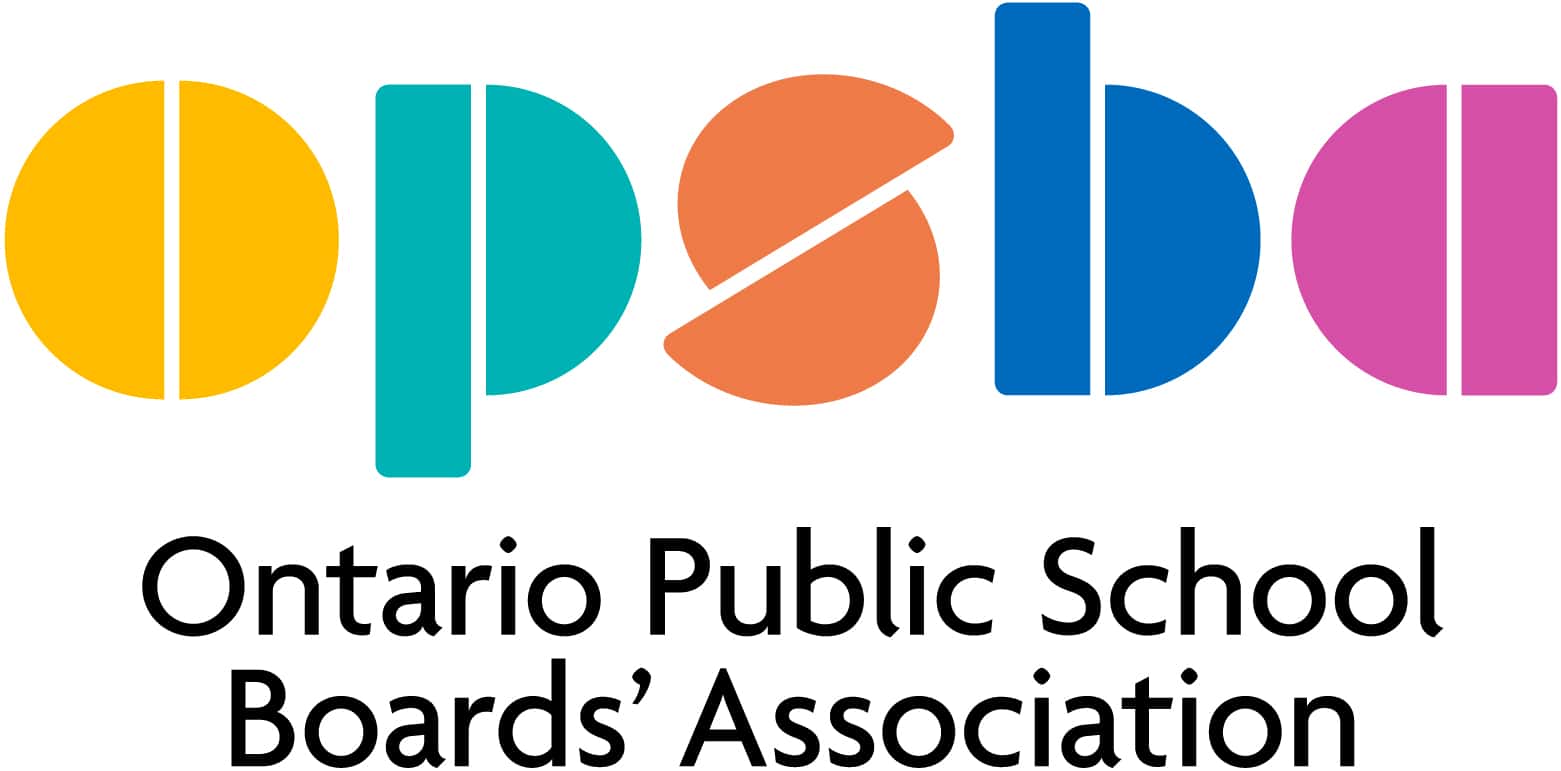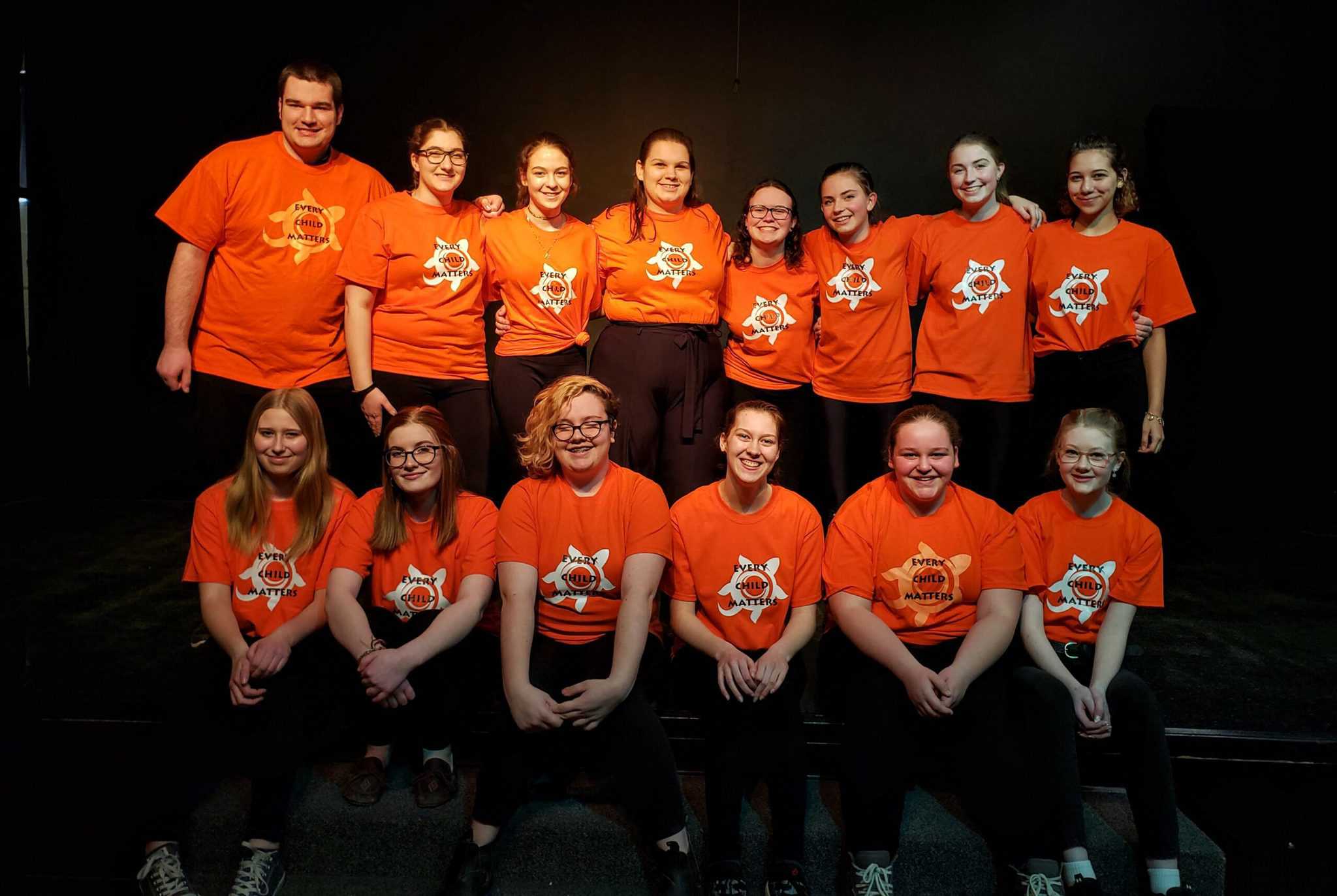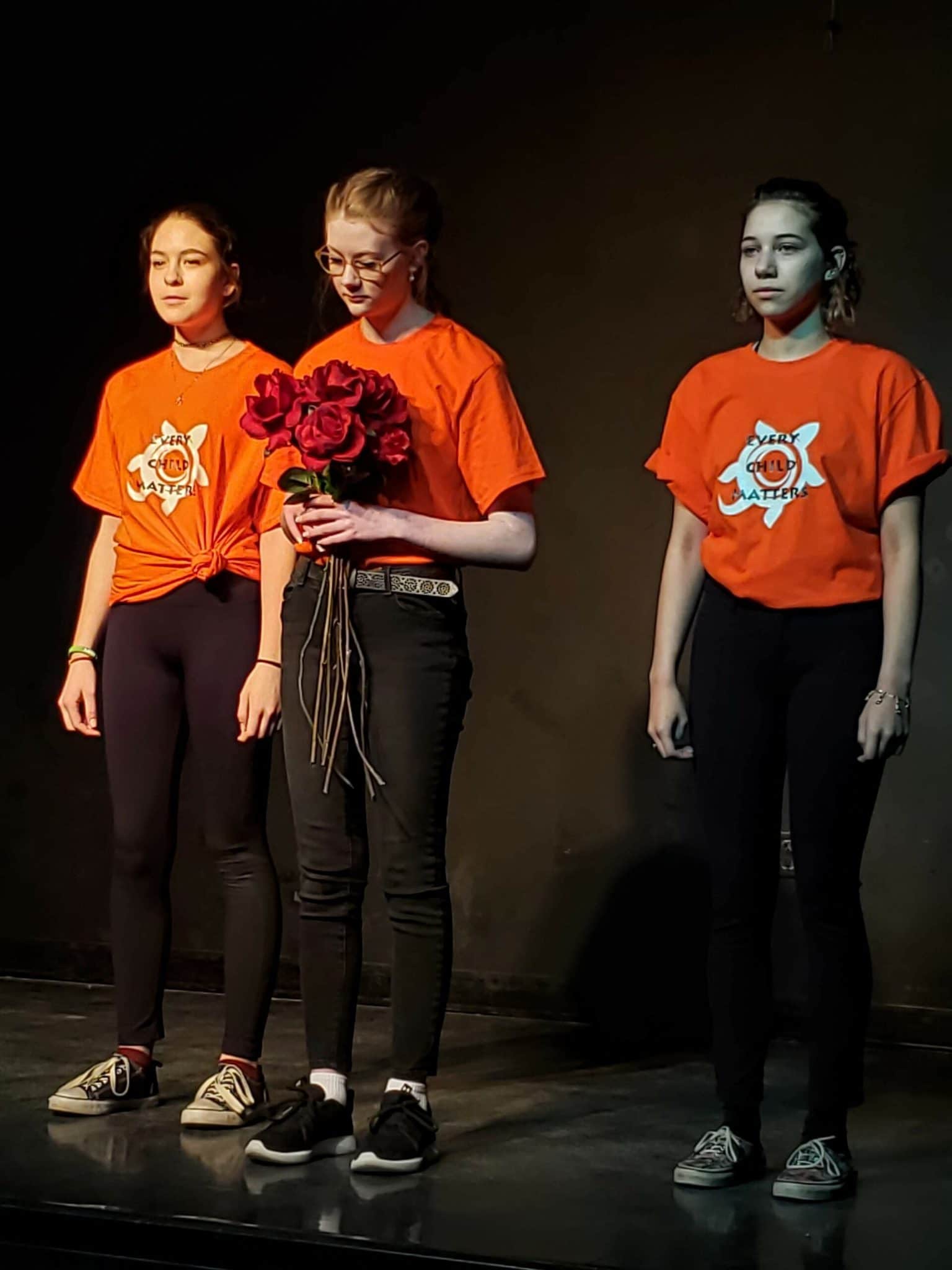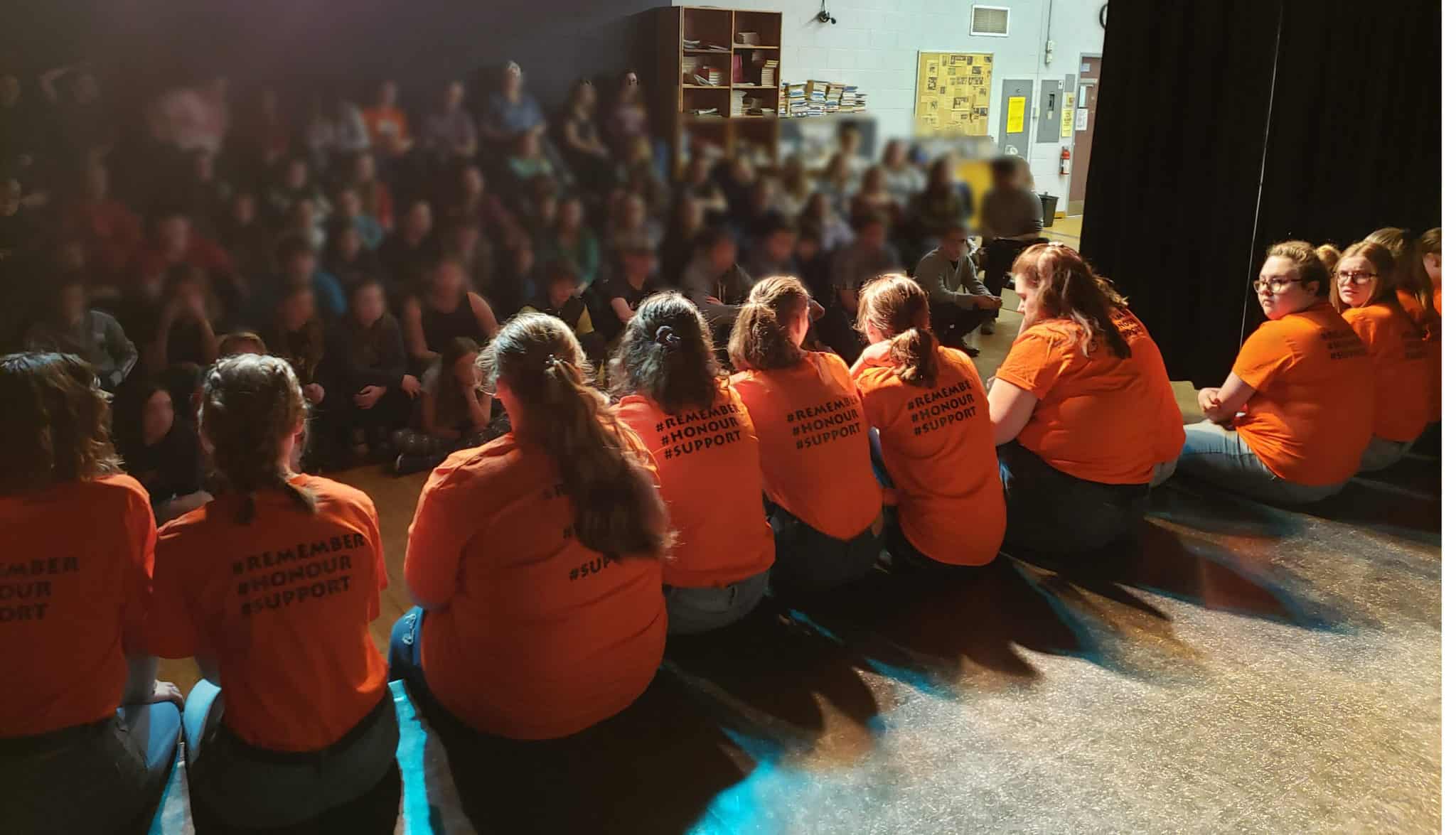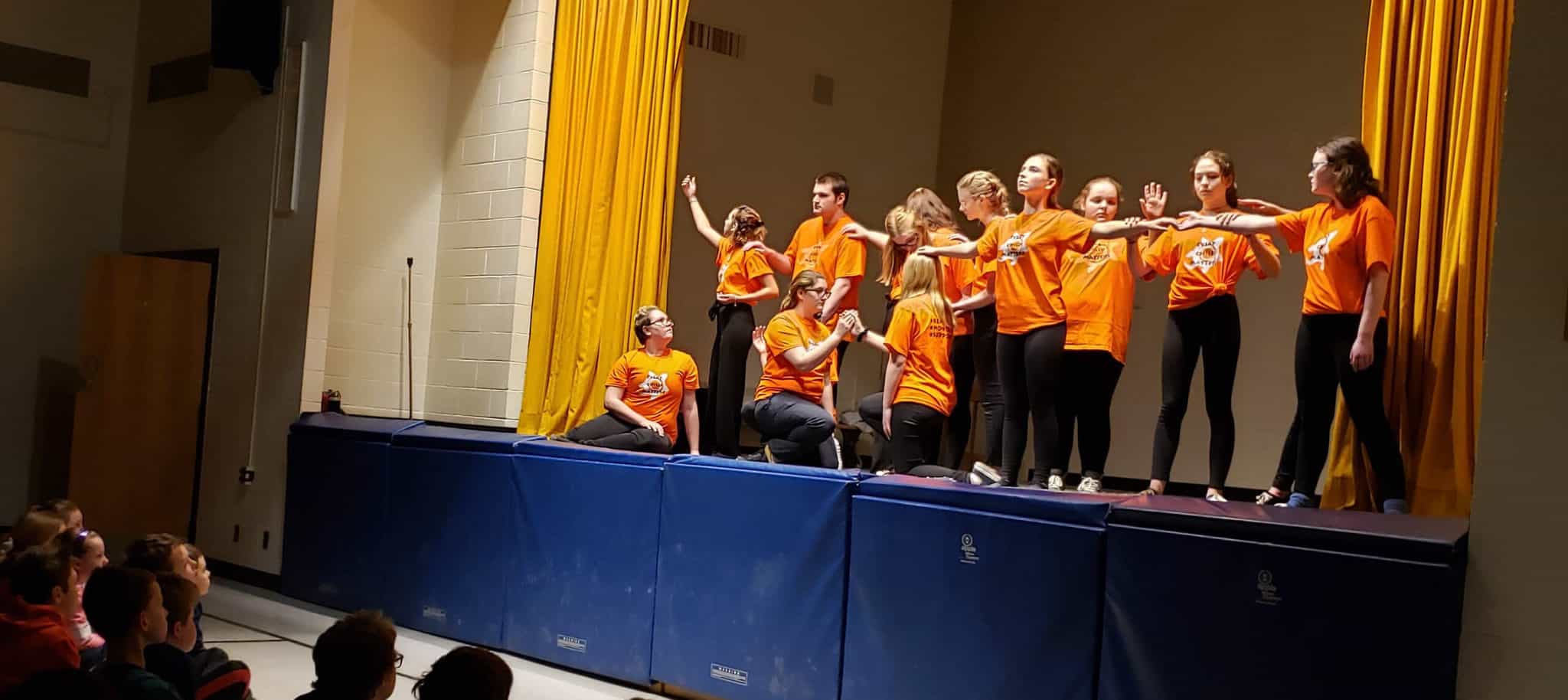Hastings and Prince Edward District School Board
Truth and Reconciliation Performance by Prince Edward Collegiate Institute Students
By Kerry Donnell, Hastings and Prince Edward DSB
Learning about truth and reconciliation was a compelling experience for students at Prince Edward Collegiate Institute (PECI) in Picton. Their learning involved researching the topic then writing and performing a play called “A Call to Action: A Collective Creation about Truth and Reconciliation.” “A Call to Action” was a collective creation focusing on truth and reconciliation from a non-Indigenous perspective. Fourteen students and teacher Matthew Sheahan co-created responses to issues, articles and history, then created choral speaking and movement pieces to highlight their feelings and newfound knowledge.
“Mr. Sheahan came up with the general concept, but it went differently to what he was expecting,” said student Kennedy Babutac. “The play was written by the students,” said Sheahan. “I provided them with news clippings in relation and they took the material from there,” he said. “The audience gets a chance to talk to the kids afterwards to engage in conversation, which is important. That’s the point. It’s about building those bridges.” The original performance was 55 minutes long and was presented at PECI, local elementary schools, as well as at the Core Arts Centre in Belleville. Each performance was followed by a Q&A period between the creative team and the audience. The students also performed a condensed version at Toronto’s Young People’s Theatre at the Children and Youth in Performance Conference, as well as at the June meeting of the Hastings and Prince Edward DSB meeting.
“I did know a bit about what happened before about residential schools and everything, but coming into this collective creation, it has really taught me more than I have learned,” said Babutac. “I think we all need to listen to what we have to say.” The performers conclude reconciliation is not an easy path, but one that requires hard work, questions, compromises and action. “We ask you to answer this call to action.”
|
|
| Previous Article | Next Article |
